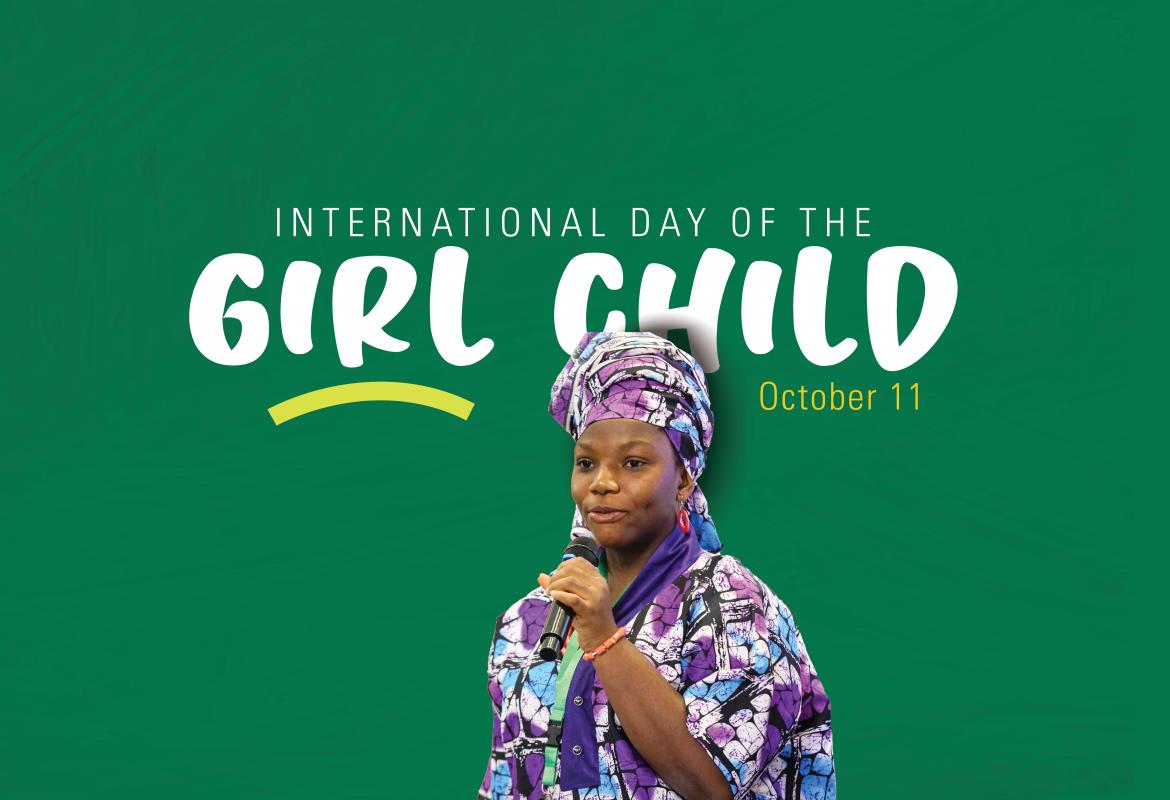The Special Rapporteur on Child Marriage and Other Harmful Practices, Hon. Hermine Kembo Takam Gatsing, and the Special Rapporteur on Violence Against Children, Hon. Aver Gavar, of the African Committee of Experts on the Rights and Welfare of the Child, join the global community in marking the International Day of the Girl Child.
Across African Union (AU) Member States, progress has been made in advancing the rights and welfare of girls, including legislation establishing the minimum age of marriage at 18 years without exception and prohibiting female genital mutilation (FGM). Yet challenges remain, as harmful practices continue to persist at high levels in some Member States and are still justified under the guise of cultural and social norms, and emerging regressive debates further risk undermining the progress achieved in protecting girls’ rights.
Girls are increasingly at the forefront of change, leading campaigns to end child marriage and FGM at the national level, championing climate action in domestic courts, and using technology and digital media to amplify their voices. Their leadership embodies this year’s theme, ‘The girl I am, the change I lead: Girls on the frontlines of crisis’.
The African Charter on the Rights and Welfare of the Child, ratified by 51 of the 55 AU Member States, is the principal normative framework for the protection and promotion of child rights in Africa. It affirms that all rights are indivisible and interdependent, and the guiding principles require that every girl be treated equally, her best interests be the primary consideration, her right to survival and development be safeguarded, and her views be heard and duly considered in all decisions affecting her. The Charter also speaks directly to the lived realities of girls, for example, guaranteeing the right of pregnant girls to continue their education (Article 11(6)) and explicitly prohibiting child marriage and other harmful practices (Article 21).
Africa’s Agenda for Children 2040 builds on these commitments, envisioning a continent where every girl is guaranteed access to quality and inclusive education (Aspiration 6); is afforded full protection from violence, exploitation, and harmful practices (Aspiration 7); and is recognised as an active rights-holder whose views are heard and given due weight in all decisions affecting her (Aspiration 10).
On this Day, we call upon all AU Member States to:
- Establish safe and meaningful participation opportunities for girls in decision-making at all levels, and integrate gender-transformative education into school curricula to promote equality, autonomy, and rights awareness;
- Strengthen multi-sectoral coordination among government ministries, civil society, and traditional, religious, and community leaders to ensure a united and coherent response that advances girls’ rights more effectively; and
- Engage traditional, religious, and community leaders to denounce harmful practices, and support locally driven, context-specific initiatives that use inclusive, bottom-up approaches and place communities (particularly girls) at the centre of transforming attitudes and behaviours.
Done in Maseru, Kingdom of Lesotho
11 October 2025







